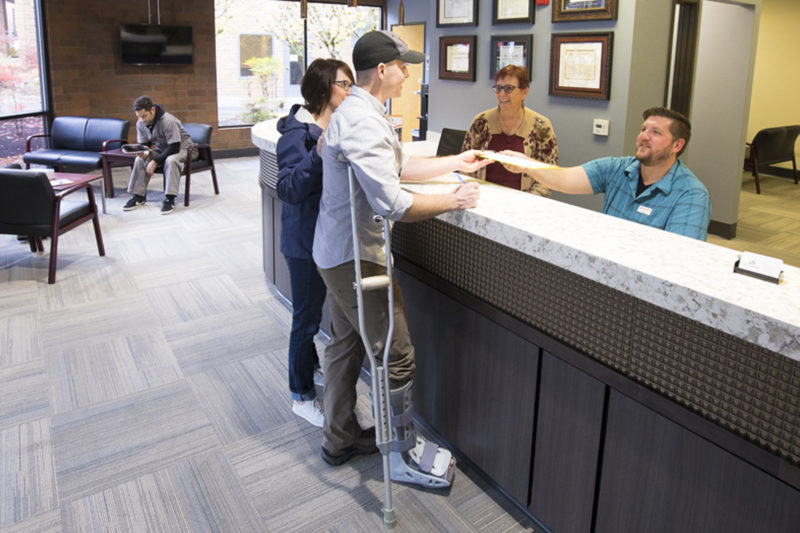North Carolina Workers’ Compensation lawyers
Each December, the Bureau of Labor Statistics reports its National Census of Fatal Occupational Injuries for the previous year.
In 2018, a total of 4,836 United States workers suffered fatal work injuries in our country. This represents a slight increase from the 2014 total of 4,821. Virginia was one of six states with fatal injury totals at or below the lowest figures ever reported, along with Alabama, Alaska, Indiana, Maine, and North Carolina.
While it’s good news for North Carolina workers that fatal work injuries are at an all-time-low, deaths on the job still happen. If your family member or loved one suffered a fatal work injury, call the Richmond workers’ compensation attorneys at the King Law Firm.
When an employee dies while on the job, it is presumed that his work was the cause of his death. The employer has the burden to prove that the employee’s death was not work-related. Weekly death benefits in workers’ compensation cases are generally paid only to children or spouses who were financially dependent on the employee that passed away on the job. In the event of a work-related fatal injury, workers’ compensation would pay medical bills, funeral expenses, and lost wages for up to 500 weeks.
The Bureau of Labor Statistics compiled its list of the 10 most dangerous jobs in America. They are ranked by the number of deaths per every 100,000 workers, which is known as the fatal work injury rate:
- Landscaping and Groundskeepers: 18.1 deaths per 100,000 workers. This occupation’s fatal injury rate is at an all-time high of 289 deaths in 2015. They face electrical burns, shocks, heavy machinery dangers, traffic and working in hot conditions to the extreme.
- Utility Linemen: 21.5 deaths per 100,000 workers. Electrocution and deadly burns are risks for utility linemen. Harsh weather conditions are another factor contributing to their fatal work injury rate.
- Farm and Agricultural Workers: 22 deaths per 100,000 workers. Fatalities for farm workers increased 25 percent in 2015. Accidents involving heavy machinery such as tractors, choppers, combines, hay balers, and other heavy farm machinery can cause life threatening injuries. Being far away from a medical facility plays a huge role in farm worker deaths.
- Truck drivers: 24.3 deaths per 100,000 workers. While the number of recorded fatalities was down to 885 in 2015, this group accounts for more than 25 percent of all fatal occupational injuries. Driver fatigue, weather, traffic congestion, equipment failures, and breakdowns all contribute to the risk of a fatal truck accident.
- Iron and Steel Workers: 29.8 deaths per 100,000 workers. Iron and steel workers are often high above the ground on slippery or uneven surfaces. Falls from dangerous heights as well as serious burns are just a few of the dangers they face.
- Garbage Collectors: 38.8 deaths per 100,000 workers. While this might not seem like a dangerous job, workers can slip and fall from the truck and get struck by the truck or another vehicle in traffic. Also, the contents of trash cans can be hazardous: broken glass, needles, and toxic chemicals.
- Roofers: 39.7 deaths per 100,000 workers. It’s easy to see why roofers and construction workers have to be extra careful: falling from a roof can result in serious injury.
- Aircraft pilots and engineers, 42.4 deaths per 100,000 workers. Though incidents of work fatality dropped 30 percent for this occupation in 2015, they still suffered 57 fatalities. It’s a dangerous and demanding industry.
- Fishing: 54.8 deaths per 100,000 workers. The farming, fishing and forestry industry in total suffered a 10 percent increase in fatal injuries in 2015 with 284 deaths. Working on the water, like so many Chesapeake Bay watermen do, is extremely dangerous. Harsh weather, heavy machinery use, and being out in the water far from land and proper medical care when injuries occur all contribute to the danger.
And, the most dangerous job in America is:
- Logging Workers: 132.7 deaths per 100,000 workers. Workers in the logging industry face rough terrain, falling trees and branches, and the use of dangerous equipment often high above the ground where accidents are likely to happen. Because logging often occurs in isolated areas which make it difficult to access medical care quickly, loggers suffered 67 fatal work injuries in 2018 – the highest in 7 years.
Call King Law Firm at (910) 446-3080 to schedule a free consultation.


